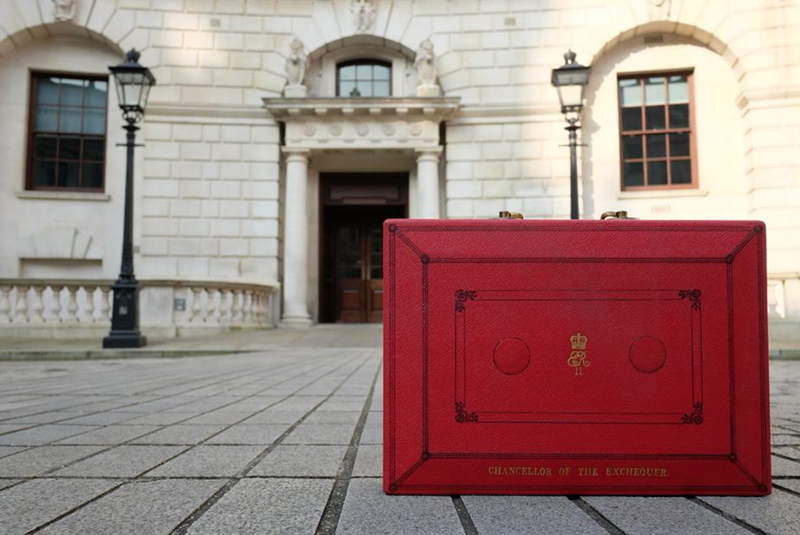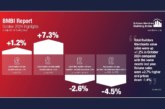
Reaction and responses are coming in for this year’s Budget. PBM presents some of the first comments on the 2017 Budget.
*** Update: Click here for 2017 Budget comment from the BMF
Federation of Master Builders
The Chancellor Philip Hammond has today delivered a ‘budget for builders’ that should allow small builders to deliver more of the new homes Britain so badly needs, says the Federation of Master Builders (FMB).
Commenting on the Budget 2017, FMB Chief Executive Brian Berry said: “The Government has set itself a new target of building 300,000 new homes a year by the mid-2020s. And today the Chancellor has put small and medium-sized builders at the heart of ambitious plans to tackle the growing housing crisis.
“The Chancellor appears to be putting his money where his mouth is with the announcement of £44 billion of capital funding, loans and guarantees. In particular, a further £1.5 billion for the Home Building Fund to be targeted specifically at SME housebuilders can play a significant role in channelling crucial funding to this sector. A £630 million fund to prepare small sites for development and proposals to require councils to deliver more new housing supply from faster-to-build smaller sites will provide opportunities to boost small scale development.”
Berry continued: “A second major challenge to getting new homes built is the skills crisis we face. In the long run, the only real solution to chronic skills shortages will be a major increase in the training of new entrants into our industry. We are therefore pleased to hear the Chancellor has today committed extra resourcing to training for construction skills. With Brexit round the corner the next few years will bring unprecedented challenges to the construction sector. The Government will need to make sure that the sector continues to have access to skilled EU workers, but we are pleased that the Chancellor has today listened to the needs of SME builders.”
Walker Crips Alternative Investments
James Allen, head of Walker Crips Alternative Investments, commented on the 2017 Budget: “The Chancellor reaffirms his commitment to get average house building numbers up to 300,000 per annum and realises that this cannot be achieved by the major housebuilders alone. His commitment to support SME housebuilders, lift the borrowing cap on councils that have high house building needs and fund training in the construction industry provides a three pronged attack which, for the first time in decades, actually has the chance of succeeding in delivering the housing stock the country needs.
“This is an example of practicality trumping ideology and should be supported by the vast majority of the population. Following his promised reform of the planning system, if he could also address the non-implementation of planning approval by developers I would predict his 300,000 new build target would be met.
“Abolishing stamp duty on the first £300,000 spend by any first time buyer is a welcome help to those looking to get onto the housing ladder, but it does not address the real issue which is affordability. There are many brownfield sites in London that could produce studio flats which would attract no stamp duty after this latest announcement from the Chancellor.
“Many of these sites have had planning for years (having to be renewed every three years), but are still to be developed. If developers were not allowed to renew planning but instead had to sell the site if their planning lapsed, we would see a vast reduction in the gap between planning approvals and delivery of new housing stock.
“The Chancellor should heed his own advice when he said there was not one magic bullet to solve the housing crisis and he should now turn his focus onto the implementation of planning approvals.”
Construction Industry Training Board
Steve Radley, Director of Policy at CITB, said of the 2017 Budget: “The Government’s commitment to build 300,000 new homes each year and the £170m Sector Deal should give our industry the confidence and the firepower to make the investments needed to transform its performance. The right skills will be critical to deliver this change, so the £34m funding for construction training is a vital investment.
“The focus on digital skills is essential to developing a workforce which exploits the benefits of the digital revolution, aiding modern methods of production and boosting productivity. However, there is no quick fix to the skills shortage and construction skills must be of a high standard. We look forward to working closely with employers and Government to ensure these promising new measures deliver for our industry.”
Freight Transport Association
The Chancellor’s decision to freeze the rate of duty on fuel is welcomed by the logistics sector, which is already battling inflation at a five year high, but a cut would have done far more to boost the economy, says the FTA. The association had been campaigning for a 3p cut in fuel duty to provide a significant and immediate positive impact on the nation’s economy.
Christopher Snelling, FTA’s Head of National Policy, said: “A freeze in fuel duty is a welcome decision, but it demonstrates a real lack of ambition by the Chancellor. The cost of moving goods around the country and overseas determines the cost of doing business in Britain and the price of goods in our shops. At a time when British business is under extreme pressure to prove its credentials and reinforce existing trading relationships, Mr Hammond has missed an opportunity to cut these costs, and make the UK a more competitive place to do business.
“Fuel duty increases would have been the wrong tool to use to address air quality. As logistics operators currently have no practical alternative to diesel it would have produced no change in behaviour, just adding cost to those businesses who are facing the burden of the planned Clean Air Zones.”
FTA research shows the price of diesel accounts for nearly a third of the operating costs for an average 44 tonne truck. Just one penny increase in the cost of a litre can add £470 a year to the cost of running one of vehicle. Many FTA members run fleets of hundreds or even thousands of vehicles and the resultant cost of a duty rise can have a significant effect on operating margins and future solvency.









